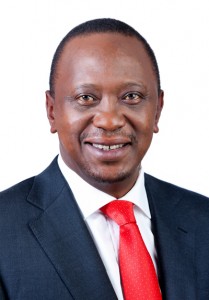
Uhuru Kenyatta, President of Kenya. Photo by Nairobi123 (State House of Kenya/ Government of Kenya) via Wikimedia Commons
All around the world, governments are worried about terrorism. And, under the guise of stopping terrorism, tthey make laws. These laws differ in the exact details, but one theme that seems to run through them all is restrictions placed on their citizens. The latest to follow this trend is Kenya.
On Tuesday, the Kenyan government’s NGO (non-governmental organization) coordination board announced the deregistration of 510 NGOs. The board said in a statement that “some NGOs have been and continue to be used for criminal activities, including as conduits of terrorism financing in Kenya and in the Horn of Africa”. Fifteen of them are suspected of money-laundering and financing terrorism.
The statement went on to say; “The board has with immediate effect deregistered these organizations, frozen their bank accounts and forwarded information on them to relevant government security agencies for immediate action.”
Many of them seem to be aid agencies and charities which failed to provide financial audit returns, and several of them seem to be Christian organizations, orphanages or groups working in the areas of health and development.
Fazul Mahamed, the executive director of the board, said to the Standard; “The NGOs with accounting issues can only be allowed to operate if they successfully go through a thorough vetting process. Otherwise, they will remain deregistered indefinitely.”
Then yesterday, the Kenyan Parliament passed an anti-terrorism bill that from our viewpoint can only be called nightmarish and repressive. President Uhuru Kenyatta claims that the legislation is needed to tighten national security and combat Islamist militants. The Somali extremist group al-Shabaab has been responsible for recent attacks in which 67 people were murdered, as well as the attack on the Westgate mall in Nairobi last year.
The Parliament session was chaotic. The deputy speaker had water thrown her on her, opposition members of Parliament ripped up copies of the bill, and fistfights and scuffles took place. Live television broadcasts were shut down and journalists removed as the situation became more frenzied.
The new laws mean suspects will be liable to be held without charge for 360 days, rather than the previous 90 days, and sentences for those convicted will be lengthened. Landlords will be compelled to provide information about their tenants. They also allow a domestic spy force to carry out covert operations and tap communications without court consent. Journalists could face up to three years in prison if their reports “undermine investigations or security operations relating to terrorism,” or if they publish images of terror victims without permission from the police.
Boniface Mwangi, an activist and photographer, said; “It’s not an anti-terror bill, it’s an anti-media, anti-activist, anti-citizens bill. They can arrest me without evidence or a warrant. We are going back to the days of dictatorship.”
The threat of terrorism is very real. However, we’re seeing more and more governments using terrorism as a rationale to enact strict laws that strike at the very heart of what we perceive as basic freedoms. Warrantless wiretapping, holding suspects without charges, media crackdowns; we’ve seen this spread all over the world, from here in the US starting in 2001 with the Patriot Act to now in Kenya,
Does the reduction and/or elimination of our rights in the name of “national security” actually make us any safer? Doubtful. Do we feel it’s a fair tradeoff? Absolutely not.
“Those who would give up essential Liberty, to purchase a little temporary Safety, deserve neither Liberty nor Safety.” – Ben Franklin, 1755

